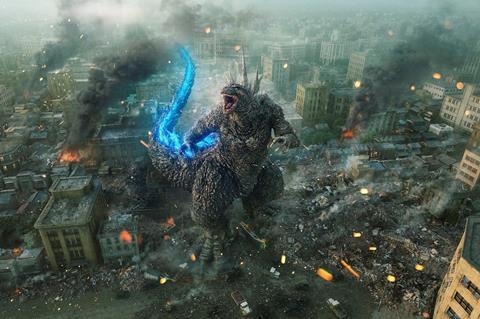In the latest cinematic venture, Godzilla: Minus One, the colossal Kaiju returns to the silver screen with a title that delves deeper into the narrative, unraveling a profound connection to Japan’s tumultuous history. As the credits roll on Godzilla: Minus One, audiences are treated to a film that pays homage to the arguable Golden Age of the franchise, steering away from the intricate lore of recent Monsterverse installations in favor of a more direct Kaiju thriller. The critical acclaim garnered by Godzilla: Minus One underscores its stellar craftsmanship, establishing it as one of the most highly praised monster movies in recent memory.
What distinguishes Godzilla: Minus One is not only its monstrous protagonist but also the compelling human story interwoven with the Kaiju’s destructive path. Unlike recent attempts within the Monsterverse, the film presents human characters that leave a lasting impression, offering a refreshing departure from the conventional Godzilla narrative. The film’s departure from recent conventions is further emphasized by its enigmatic title, a puzzle quickly solved by the unfolding story.
The true essence of Godzilla: Minus One’s title lies in the symbolism of the titular monster and its historical allegory. Godzilla, conceived as an embodiment of nuclear warfare, originally terrorized Japan as a metaphor for the haunting realities of war. While recent iterations within the Monsterverse diverted from this concept, Godzilla: Minus One returns to the roots, setting the stage in 1945 Japan.
The title, Godzilla: Minus One, encapsulates the notion that Japan was at ground zero, its lowest ebb, in the aftermath of World War II. The film unfolds against the backdrop of Japan’s post-war reconstruction, exacerbating the country’s challenges with the emergence of Godzilla. The Kaiju’s devastating assaults on the nation further plunge it into despair, symbolized by the “Minus One,” depicting Japan’s descent below zero in the face of Godzilla’s relentless terror.
The narrative connection between Godzilla: Minus One’s title and its storyline is poignantly established through the portrayal of Godzilla. In recent Western media, particularly the Monsterverse, Godzilla has been portrayed as more of an antihero rather than the destructive force of nature inherent in Japanese filmmaking. Godzilla: Minus One upends this contemporary depiction, returning to the roots where Godzilla’s catastrophic actions were instinctive rampages, serving as a potent metaphor for the horrors of warfare.
The film masterfully rekindles the original essence of Godzilla, showcasing the Kaiju as a cataclysmic force devoid of heroism. In stark contrast to the benevolent savior portrayed in the Monsterverse, Godzilla in Minus One becomes an overwhelming wave of ruin, wreaking havoc on the characters within the film and the very fabric of Japan itself. This portrayal aligns seamlessly with the title, underscoring the film’s perspective on Godzilla and reestablishing the Kaiju’s timeless significance in Japanese filmmaking.
In essence, Godzilla: Minus One unfolds as a dark tale of post-war despair, skillfully merging historical allegory with Kaiju mayhem. The film’s evocative title serves as a poignant prelude to the devastation wrought by Godzilla, offering audiences a cinematic experience that goes beyond mere monster spectacle. As Godzilla returns to its roots, Minus One stands as a testament to the enduring legacy of the iconic Kaiju and its profound impact on the silver screen.


